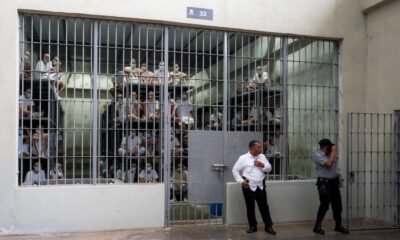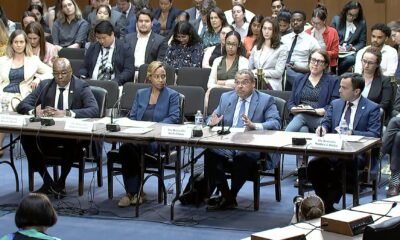cct-tracking
Trump Administration Seeks to Reinstate Laid-Off Nuclear Workers Amid Surprising DOGE Turnaround

In a surprising turn of events, the Trump administration has reversed its decision to dismiss hundreds of federal employees working on critical nuclear weapons programs. The National Nuclear Security Administration (NNSA) faced a substantial upheaval when up to 350 employees were abruptly terminated.
The firings occurred late Thursday, leading to confusion among staff members who discovered their access to email and offices was suddenly cut off without prior notification. The Pantex Plant near Amarillo, Texas, was particularly affected, losing about 30% of its workforce, many of whom dealt with nuclear warhead reassembly, a task that requires the highest security clearance.
This decision was part of a broader restructuring initiative by the Department of Government Efficiency (DOGE), which has come under scrutiny for its lack of knowledge regarding the NNSA’s essential functions. Daryl Kimball, executive director of the Arms Control Association, criticized the management team, asserting they failed to grasp the significance of the department’s responsibilities beyond mere energy efficiency.
Following backlash from employees and officials, NNSA’s acting director, Teresa Robbins, issued a memo late Friday rescinding the termination notices for all but 28 of those affected. Despite this, an official statement from the Department of Energy claimed only a small number of employees were let go, labeling them as “probationary” staff in clerical positions. This characterization clashed with reports from multiple unnamed officials, who insisted that many of those fired held critical roles involving nuclear security.
In a LinkedIn post, Deputy Division Director Rob Plonski called the firings a “pivotal moment” for the country’s nuclear commitments, arguing that the cuts could jeopardize national security. The recent firings included personnel responsible for managing radioactive waste sites and ensuring community safety, areas typically requiring significant expertise.
Lawmakers, including U.S. Rep. Marcy Kaptur and U.S. Sen. Patty Murray, decried the job cuts as “utterly callous and dangerous,” emphasizing the potential risks posed to public safety and national security. Some of the reinstated staff have expressed uncertainty about returning, fueled by concerns over the stability of their positions.
The NNSA is currently navigating a $750 billion modernization effort for nuclear armaments, including new systems and technologies. This adds urgency to maintaining an experienced workforce, especially as many longtime employees have recently retired, leaving a reliance on a younger staff with less tenure.
Edwin Lyman from the Union of Concerned Scientists noted that these firings could destabilize agency operations, potentially sending a concerning signal to adversaries abroad. Such disruptions not only threaten the integrity of the U.S. nuclear program but may also undermine global security efforts.


















